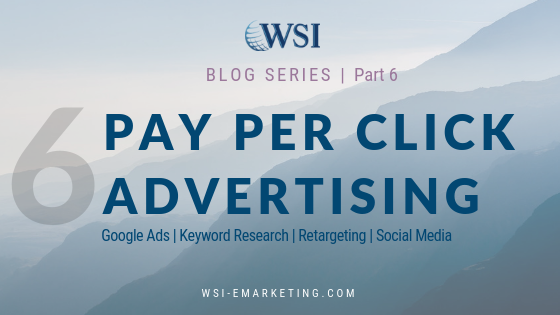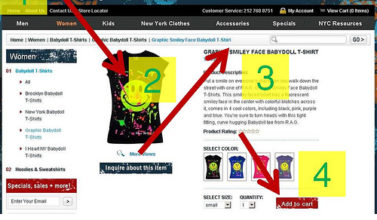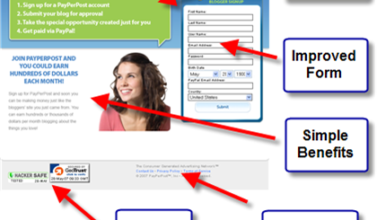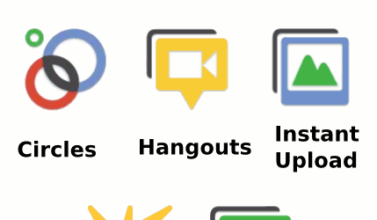
The primary goal for businesses is to make it easy for their customers to find them. While SEO, keywords and organic traffic contribute greatly, Pay Per Click (PPC) advertising is an incredibly valuable tactic. It’s a model of internet marketing involving bidding on keywords where advertisers pay a small fee every time one of their ads is clicked.
Where organic search is all about “earning” visits, paid search is a way to essentially buy visits to your website. Pay-per-click advertising involves bidding against other companies or sites for relevant keywords and keyword phrases. If your bid for a relevant search term is higher than a competitor’s, your page will appear above theirs in the sponsored links at the top of the search results page. An added benefit is that you also only pay when someone clicks on your advert.
When your PPC campaign is set up correctly, the click price is insignificant as the web visit is worth more. In other words, if you pay £2 for a click which then results in a £200 sale, you stand to make a good profit.
Pay per click is becoming even more important because of the countless opportunities. It has an untapped potential that can yield incredibly good returns. PPC can help expand your business into new markets resulting in more customers. There are many moving parts to setting up a good PPC campaign so you need to do it right.
Setting Up A Winning PPC Campaign
Pay per click includes running campaigns, collecting and analysing vast amounts of data, setting and sticking to a budget and closely monitoring results. Google Ads (formerly Google AdWords) is by far the world’s most popular PPC advertising system and for good reason. It gives you the ability to control exactly where visitors from certain search terms should be directed to on your website.
Let’s assume someone is searching for “Police sunglasses” and you own a website stocking brands for men and women. Sending customers to your homepage will only create confusion in terms of where to find the product they just clicked on. In many cases, they might even abandon their search and leave your site trying altogether. PPC best practice is to create unique landing pages for each advert. In this example, sending customers to a dedicated landing page for Police sunglasses will streamline their search and purchase process.
How does Google Ads work?
Google Ads is a pay per click model where users bid on keywords and pay for each visitor click. Every time someone initiates a search, Google looks at a selection of ads from various advertisers and selects a set of “winners” to appear at the top. The selection process is based on a combination of factors, such as the quality and relevance of keywords and ad campaigns, along with the size of their keyword bids. This also refers to an advertiser’s Ad Rank.
Ad Rank is a metric calculated by multiplying CPC and Quality Score. CPC, or Cost Per Click, is the highest amount an advertiser is willing to spend and Quality Score takes into account elements like click-through rate, content relevance and landing page quality. This allows the top advertisers to reach their potential customers at a cost that best fits their budget.
Running a PPC campaign through Google Ads is particularly valuable. Because Google is, by and large, the most popular search engine, they get huge amounts of traffic and can deliver the most impressions and clicks. The frequency at which your ads appear will depend on the keywords and match types you selected.
While several factors determine the success of your PPC ad campaign, following these tips should help you get started:
-
Produce Creative Ad Copy
Time and time again we speak about the importance of content and it is no different with PPC. Content is often the deciding factor whether the prospective customer clicks or doesn’t click which means creating an attractive and creative advert is vital.
-
Set Up Dedicated Landing Pages
As mentioned earlier, each PPC advert should have a dedicated landing page. The number of people clicking on your ad is irrelevant if they land on a page that is not set up correctly. Determining ROI involves knowing how many clicked but also, and more importantly, how many clicks turned into conversions. Always ensure that the content is fresh, relevant, consistent and includes a clear call to action.
-
Monitor Keywords And Improve Conversion Rates
Keep a close eye on your conversion rate and see which keywords or keyword phrases produce the best sales outcomes. Consider exchanging low-conversion keyword phrases for new, more effective phrases. Refer to this article for more information on keyword research.
-
Improve Your SEO Strategy Using PPC
If set up and monitored effectively, your pay per click campaign keywords can also boost your SEO content. Identify the best performing keywords or phrases and specifically target those so that the two strategies can work in tandem.
-
Improve Your Brand Profile
Sales are vital for every business and most prospective buyers research the company before making a final decision to purchase. They often visit several sites to compare products, prices and reviews so make sure that your brand is portrayed in the best possible way. All aspects of your content need to offer real value for site visitors.
-
Advertise Discounts, Vouchers Or Special Offers
Remember that every click will cost you a small amount but it doesn’t guarantee a sale. You need to set up a process that is simple, attractive and persuasive to maximise the chances of closing the sale. Special offers can help drive traffic to your website and may increase sales.
Five strong keywords that generally perform well include the following:
- Buy
- Discount(s)
- Deal(s)
- Coupon(s)
- Free shipping
-
Think Outside The Box And Get Keyword Creative
Along with your proven keywords, experiment with similar phrases or crossover areas of interest to entice new customers. Monitor these carefully to determine which are successful and which you should replace or remove. Think about the search intent of your customers and use phrases directly or indirectly related to your business.
-
Retargeting Potential Customers After A Site Visit
Once your PPC campaign resulted in a site visitor, you can track their movements regardless of conversion. Ads are targeted to these web users and displayed across various sites prompting them to return to your website. This ensures that your brand is kept top of mind for future purchases.
A good example is searching for a holiday destination on Google. If you were looking at resorts in Thailand, chances are good that you will see more ads related to Thailand the next time you’re on Facebook. Here is an interesting article on how remarketing (retargeting) works and benefits your business.
-
Consistently Monitor Your Competitors
It is relatively easy to monitor your competitors’ digital tactics and find out which keywords they are bidding on. Sites such as SpyFu, Keyword Planner, Google Correlate, Soovle, Ubersuggest and Keyword Competitor can help you analyse their keyword selection and bidding levels. In addition, you can also monitor any special offers and ad updates they may employ. During this process, you should also find untapped buyer keywords your competitors don’t know about and maximise your efforts.
-
Partner With A Professional
You don’t have to do this alone and we strongly recommend getting an expert involved in your PPC effort. Whether you have an existing campaign that needs tweaking or you want to start from scratch, don’t be afraid to ask for help. PPC experts can help you reduce PPC expenditure while seriously improving conversion rates.
Many businesses don’t have the expertise to manage their own pay per click campaigns which often results in wasted budgets and time. Here are a few issues many businesses face with their existing PPC campaigns as a result of in-house attempts or even choosing a bad digital marketing agency:
- Campaigns are often set and forgotten especially if they seem to get a reasonable return.
- Irregular quality checks.
- Not optimised for mobile means you will miss out on a large chunk of the market
- Not optimised for conversion means marketers can’t track the conversions.
- No tracking means no way of knowing how customers found you or what drove them to purchase. PPC is highly trackable from the original keyword to sales originating from telephone calls.
- No clear ROI which means a lack of effective planning, analysis and measurement of processes and subsequent results.
Can I Do PPC On My Own?
While it is not impossible by any means, using a professional, experienced marketing agency is in your best interest. Good agencies use what they have learned from other campaigns to maximise the return on yours. They also have great relationships with Google and Bing so they can resolve any issues more effectively and often get early access to new features. A good digital marketing agency will have years of experience that the majority of in-house teams simply cannot match.
If you need help setting up or wanting more from your pay per click campaigns, contact us today for a free consultation. We specialise in all things digital marketing, social media management, marketing automation, responsive web design and more.
Have you had any ‘interesting’ experiences doing PPC in-house or using a sub-par digital marketing agency? We’d love to hear from you and our readers appreciate a good story. Please share your comments below or find us on social media.
Related Post
What’s the single...
Adam Vincenzini from Comms Corner recently posted a very good article which I think goes...
- January 25, 2011
- By Rob Thomas
- Blogging
Effective Facebook Marketing...
With over 600 million users, Facebook represents the single most connected platform on...
- March 1, 2011
- By Nadine Thomas
- Latest Online Trends
Top Tips for Product Page...
As the internet evolves and user expectation becomes increasingly sophisticated, creating...
- May 31, 2011
- By Rob Thomas
- e-Commerce
How To Drive Sales With...
Landing pages have long been the primary tool of the web-savvy marketer. Whether the...
- June 12, 2011
- By Nadine Thomas
- e-Commerce
Content Sharing Via Social...
Target marketing to meet your business goals Is your business using social media channels...
- June 15, 2011
- By Nadine Thomas
- Digital Marketing
Social Media Spotlight:...
Until Facebook came along, Google was the undisputed online leader. However, this started...
- August 23, 2011
- By Nadine Thomas
- Social Media











Leave a Comments